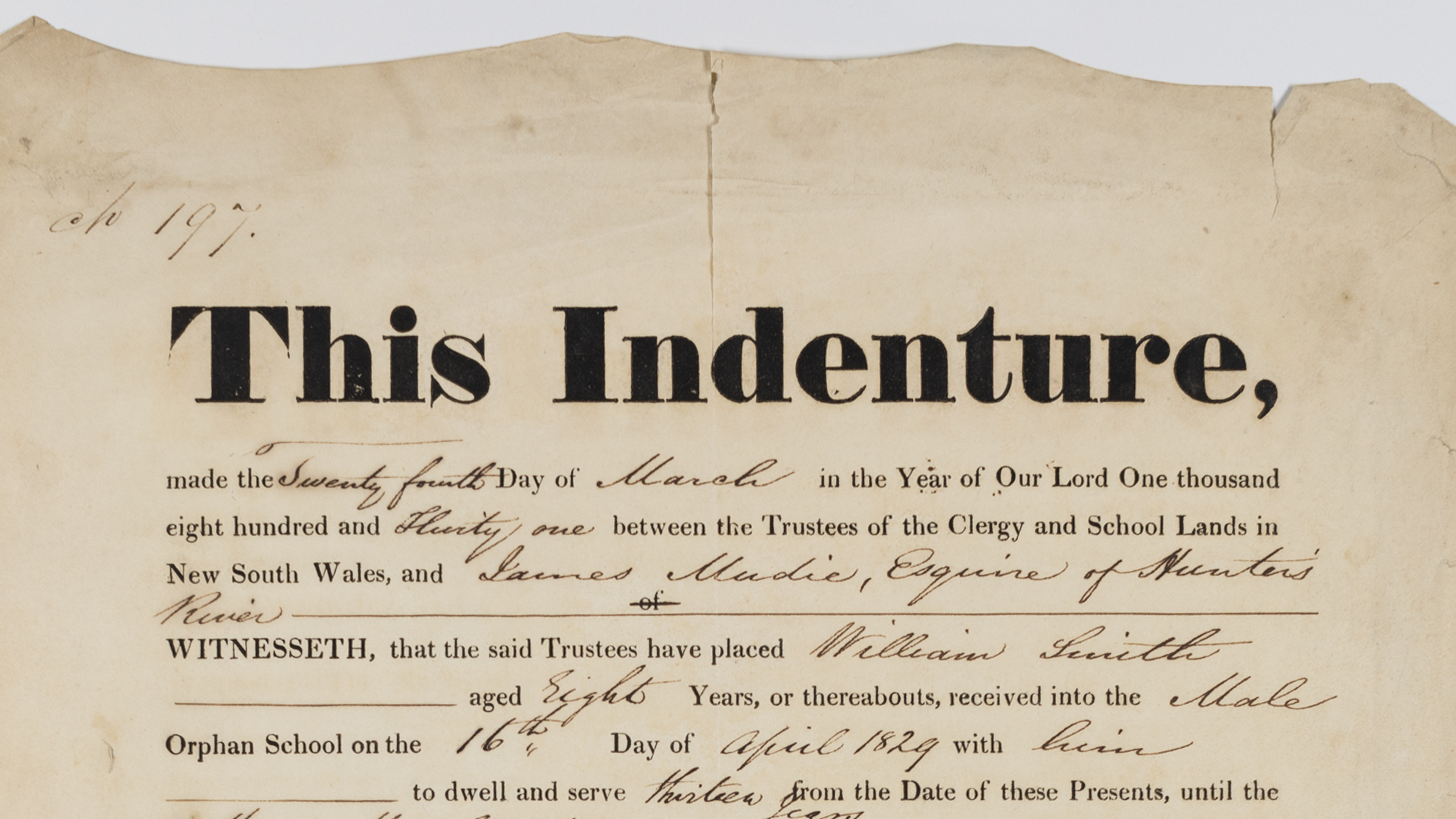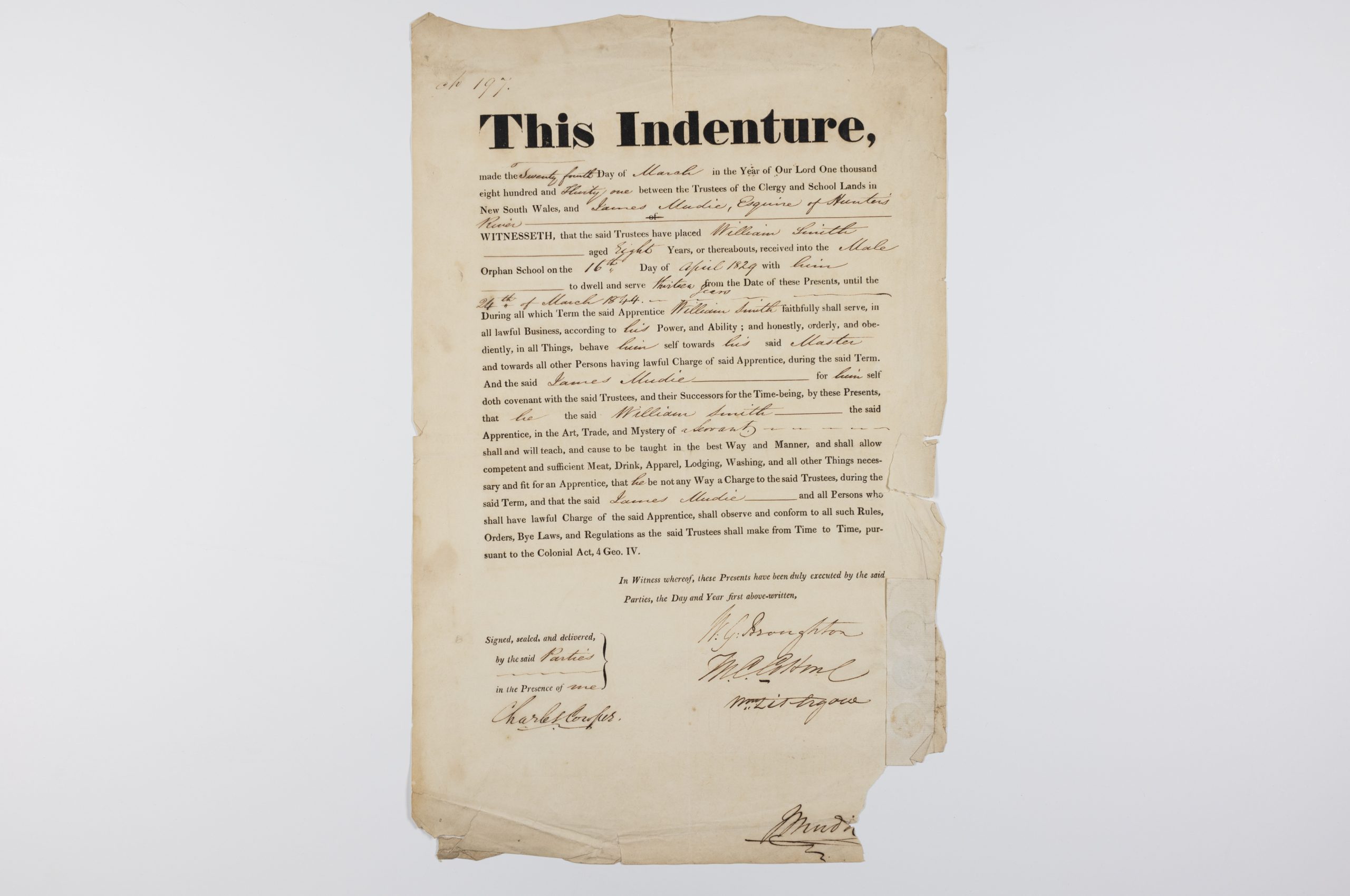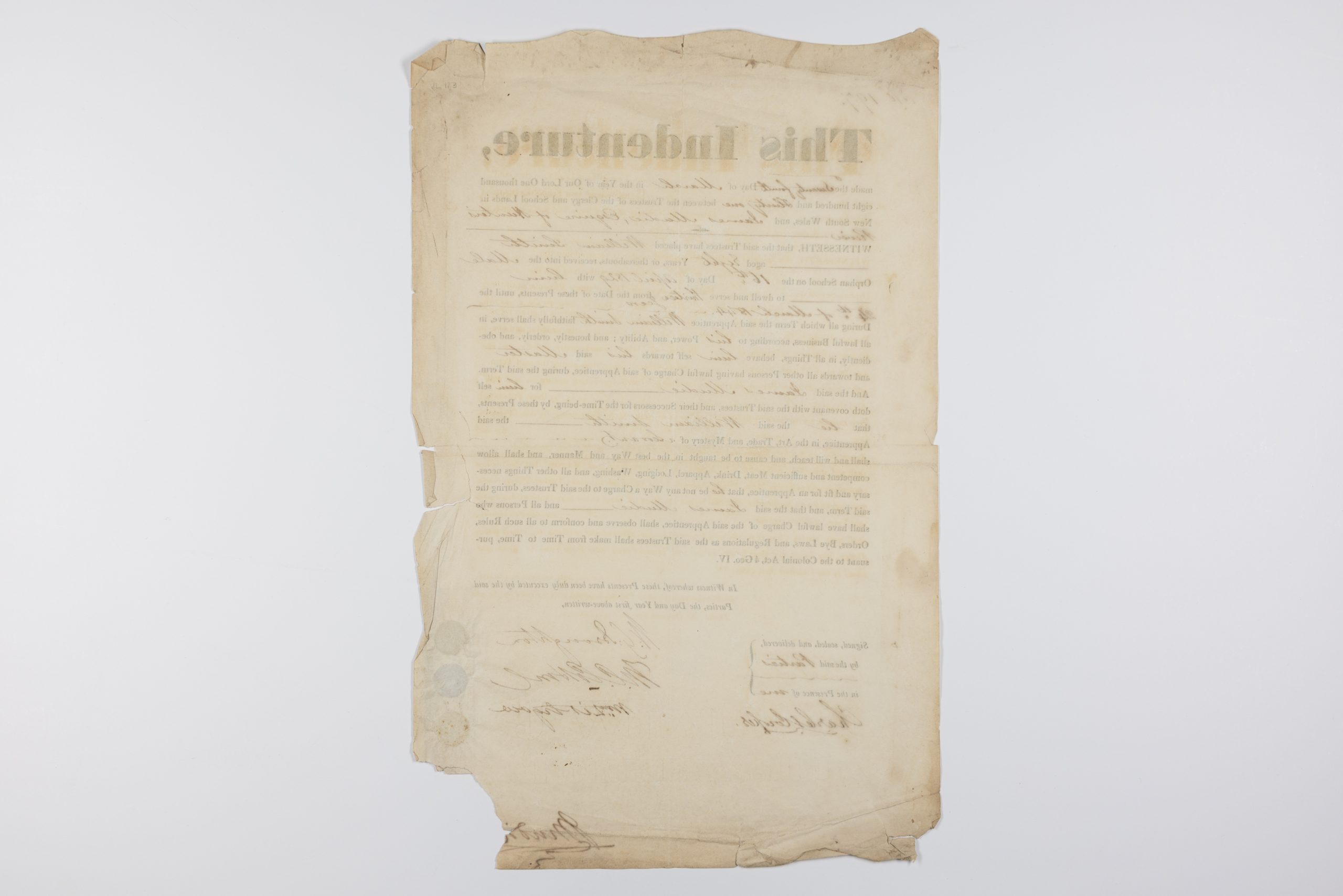William’s Pitiful Plight
A Boy Servant’s Indenture to Mudie of Maitland
In an office at the Male Orphan School in Liverpool (now Bonnyrigg), on 24 March 1831, a clerk laid a freshly printed form on his desk and, with his pen and ink, filled in the blanks. Somewhere in the rooms of the school that day was an eight year old boy named William Smith. He had been separated from his mother Elizabeth Smith at the age of six, when he entered the institution in 1829. William was probably already feeling abandoned, unloved and confused about why his mother could not care for him, and now the next 13 years of his life had been signed away on his behalf by a few official signatures rapidly made on the form.
Three days later, William was removed from the institution and taken to Maitland to work as a servant on Scotsman James Mudie’s (1779-1852) agricultural property ‘Castle Forbes’, on the Hunter River. In 1822 the colonial government had granted Mudie 2150 acres (870 ha) of the traditional lands of the Wonnarua people, where he used the labour of assigned convicts and indentured workers like William.
Most likely the son of an unmarried convict woman, William was just one of many similarly neglected and abandoned children in colonial Sydney. Bundled off to the orphan institutions, they were trained in useful skills that would make them employable as apprentices.
Young William might have been pleased to be freed from the military-like discipline of the orphan school, meted out by the master, Irish-born Richard Sadleir, a former Lieutenant in the Royal Navy. But William’s new master Mudie was a former Royal Marine, and by all accounts, a brutal and unforgiving disciplinarian. In 1833 six of Mudie’s convict workers revolted, and five were executed. Mudie was criticised for the harsh treatment of his workers and for not providing sufficient rations. Perhaps young William suffered this ill treatment too.






